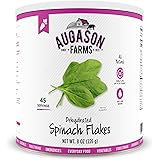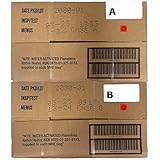Table of Contents
- Self-Reliant Living Workshops
- Mentorship Programs
- Online Courses and Resources
- Community Support Groups
1. Self-Reliant Living Workshops
Discovering Local Workshops
When I first considered becoming more self-reliant, one of the best decisions I made was to find local workshops. Many community centers and educational institutions offer classes on skills like gardening, woodworking, and sustainable living. It’s amazing how much you can learn in a short time just by immersing yourself in these activities.
I remember signing up for a weekend gardening workshop at the local botanic garden. Not only did I learn the basics of planting and maintaining a garden, but I also met a bunch of people interested in the same thing. It was such a valuable experience, providing both practical knowledge and a sense of community.
Another great thing about these workshops is their hands-on approach. Unlike online resources, you get to practice your new skills right away, with experts guiding and correcting you along the way. This kind of immediate feedback is invaluable for learning effectively.
Topics Covered in Workshops
Workshops often cover a wide range of topics, catering to various aspects of self-reliant living. For instance, some classes focus on food preservation methods like canning and fermenting, which are crucial for anyone wanting to reduce their dependence on grocery stores. I attended a food preservation workshop last summer, and it transformed the way I store and use produce.
Other common topics include DIY home repair, which teaches essential skills like plumbing, carpentry, and basic electrical work. Mastering these can save you a lot of money and give you an incredible sense of accomplishment. Plus, you’ll never be at the mercy of a contractor’s schedule again!
If renewable energy interests you, look out for workshops on solar and wind power. Learning how to install and maintain your own systems can significantly cut down on utility costs and increase your independence. Just imagine powering your home from the sun or the wind!
Finding the Right Fit
Not all workshops are created equal, so it’s important to find ones that suit your learning style and goals. Check out reviews and ask around in your community for recommendations. Sometimes, the most unassuming places offer the best training.
Another tip is to start with shorter workshops to gauge the quality and depth of instruction before committing to longer courses. This way, you won’t feel stuck if you realize the course isn’t what you expected. Trust me, I’ve been there, and it’s better to test the waters first.
== > What if ... Get a FREE Subscription to PREPARE
Ultimately, the key is to keep trying until you find something that clicks. The world of self-reliant living is vast, and there’s a workshop out there for practically every skill you can think of. So, get out there, and start learning!
2. Mentorship Programs
Finding a Mentor
When you’re looking to improve your self-reliant living skills, having a mentor can be a game-changer. A mentor provides personalized guidance, based on their own experiences and expertise. My journey into self-reliant living truly took off when I found a mentor through a local community group.
Start by identifying people in your community who already live the kind of self-reliant life you aspire to. Attend events, join clubs, and don’t be afraid to introduce yourself and express your interests. Most people are more than willing to share their knowledge if you show genuine enthusiasm.
Remember that a good mentor-protégé relationship is a two-way street. You should be ready to offer your help in return, whether it’s through physical labor, sharing your own skills, or simply being an eager and respectful learner. It’s all about building a symbiotic relationship.
Benefits of Having a Mentor
One of the major benefits of having a mentor is the personalized advice. While books and online resources offer general guidelines, a mentor can tailor their advice to your specific situation. They know the local climate, the particular challenges of your area, and can recommend the best practices that actually work where you live.
A mentor can also introduce you to a network of like-minded individuals. This expanded network can provide additional resources, opportunities, and a sense of community. For me, joining a mentor-led group was invaluable. It extended my learning and provided a support system I could lean on.
Additionally, a mentor can help you avoid common pitfalls. Their experience means they’ve already made mistakes and learned from them, giving you a shortcut to success. It’s like having a cheat sheet for achieving self-reliance more effectively and efficiently.
Long-Term Guidance
Building a long-term relationship with a mentor offers continuous learning and support. This ongoing relationship allows you to tackle more complex projects over time, knowing you have someone to turn to for advice. For example, after mastering the basics of gardening, my mentor helped me venture into beekeeping—a skill I never thought I’d acquire.
Long-term mentors can also monitor your progress, providing constructive feedback and encouragement. They celebrate your achievements with you and help you navigate through challenges. It’s almost like having a personal coach who’s invested in your success.
Lastly, the wisdom and life experiences shared by a mentor can be incredibly inspiring. Their stories of overcoming obstacles and achieving self-reliance are motivational and often provide insights that you won’t find in any guidebook or course.
3. Online Courses and Resources
Exploring Online Platforms
In today’s digital age, the internet is a treasure trove of information for self-reliant living enthusiasts. From YouTube channels to specialized online courses, there are countless resources available at your fingertips. When I started, I found online platforms like Udemy and Coursera particularly useful.
These platforms often offer courses taught by experts who have years of experience. The structured modules and interactive elements make learning engaging and comprehensive. Plus, you can find reviews and ratings to help choose the best courses.
Another excellent resource is YouTube. There are many channels dedicated to self-reliant living skills, providing free tutorials on everything from solar panel installation to permaculture. While the quality may vary, you can find some gems out there that provide top-notch instruction.
Community Forums and Blogs
Online communities and forums are another great way to expand your knowledge. Websites like Reddit, Permies, and various Facebook groups offer a platform to ask questions, share experiences, and learn from others. These communities can be incredibly supportive and filled with practical advice.
Additionally, many experts run personal blogs where they share detailed posts, tutorials, and updates on their projects. Subscribing to these blogs not only provides regular content but also offers insights into the author’s journey, ups and downs, and lessons learned along the way.
I remember spending hours reading through blog posts and forum threads when I was looking into greywater systems. The diverse perspectives and experiences I found online helped me design a system tailored to my needs. It was like having hundreds of mentors at my disposal.
Interactive Learning
One of the great advantages of online resources is the ability to learn interactively. Many courses offer quizzes, assignments, and even virtual labs that simulate real-world scenarios. These interactive elements make the learning process more engaging and effective.
For instance, I took an online course on carpentry that included 3D models and simulations. This allowed me to visualize the concepts better and practice virtually before trying them in real life. It was a game-changer for me as a visual learner.
Moreover, many platforms offer discussion boards or live Q&A sessions where you can interact with instructors and fellow learners. This immediate feedback loop enhances understanding and provides an opportunity to clarify doubts. It’s like being in a classroom, but from the comfort of your home.
4. Community Support Groups
Joining Local Groups
Getting involved in local support groups can be one of the most fulfilling ways to improve your self-reliant living skills. These groups often host regular meetings, workshops, and events focused on various aspects of sustainable living. I joined a local homesteaders’ club and it was one of the best decisions I ever made.
Start by looking for groups in your area through social media, community bulletin boards, or local events. These groups are usually eager to welcome new members and are an excellent source of support and motivation. Plus, it’s always great to know you’re not alone in your journey.
Being part of a local group also means you can participate in hands-on projects, helping others while learning new skills. From communal gardening projects to building chicken coops, the practical experience and camaraderie are invaluable.
Shared Resources
One of the biggest perks of community groups is the sharing of resources. Tools, seeds, books, and even livestock can be exchanged or borrowed, reducing the cost and effort required to get started on your projects. Our group has a tool library where we can borrow anything from drills to tillers.
Additionally, these groups often organize collective purchases, allowing members to buy in bulk and save money. Whether it’s a bulk order of compost or a group-owned piece of equipment, these shared resources can make self-reliant living more affordable and accessible.
For example, last year, our group pooled funds to buy a high-quality apple press. Now, we have an annual apple cider making day, which is both productive and a lot of fun. It’s events like these that bring the community closer and make self-reliant living enjoyable.
Emotional and Moral Support
Living a self-reliant lifestyle can sometimes be challenging and isolating. Having a community support group means you have a network of people who understand what you’re going through and can offer advice, encouragement, and a helping hand.
Whether you face a failed crop, a tricky DIY project, or just a rough day, knowing there are people you can turn to makes a huge difference. My local group has been a source of immense moral support, celebrating successes and providing comfort during tough times.
This emotional support helps sustain motivation and joy in your self-reliant living journey. It transforms what could be a solitary endeavor into a communal and enriching experience. So, reach out and find your tribe—you won’t regret it!
FAQ
Q1: How do I find local workshops on self-reliant living?
A1: Check your community centers, local colleges, and educational institutions for workshops on topics like gardening, woodworking, and sustainable living. Online platforms like Meetup and Eventbrite are also great places to find local events and workshops.
Q2: What should I look for in a mentor?
A2: Look for someone who has extensive experience in the skills you want to learn and shares your values. It’s also important that they are approachable, patient, and willing to teach. Personal chemistry matters too; you should feel comfortable and inspired by them.
Q3: Are online courses as effective as in-person workshops?
A3: Online courses can be very effective, especially if they include interactive elements like quizzes, assignments, and virtual labs. They offer flexibility and access to a wide range of expertise. However, in-person workshops provide hands-on experience and immediate feedback which some people may find more beneficial.
Q4: How do I start a community support group if none exist in my area?
A4: Start by finding like-minded individuals through social media, local events, or community bulletin boards. Organize a meetup to discuss common interests and goals. Use free online tools like Facebook Groups or Google Meet to facilitate communication and planning for your community activities.






